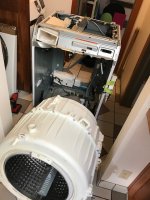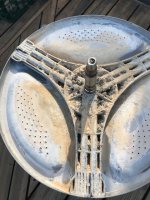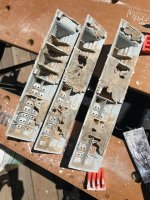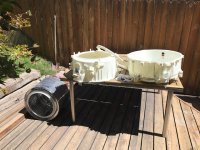Mike Goetzke
Member
- Joined
- Jul 12, 2008
- Messages
- 1,133
I'm tired of repairing my Whirlpool washer - about once a year. We were looking to get a Speed Queen - actually bought one the TC5 but it had a 6" dent in the side panel and they only wanted to give me $100 to keep it. Anyway, the salesman said he can't get another TC5 for two weeks but offered to send out a TR7 in a day. I told him to give me a day to think about it but seems the TC5 is an old school tank. That's why I originally ordered it. The TR7 has several more features. The TC5 has a transmission and a 1/2HP motor while the TR7 has a 1HP variable speed motor with belt drive. I'm so confused.
Anyone have experience with these that can help me decide? - Thanks
Anyone have experience with these that can help me decide? - Thanks




